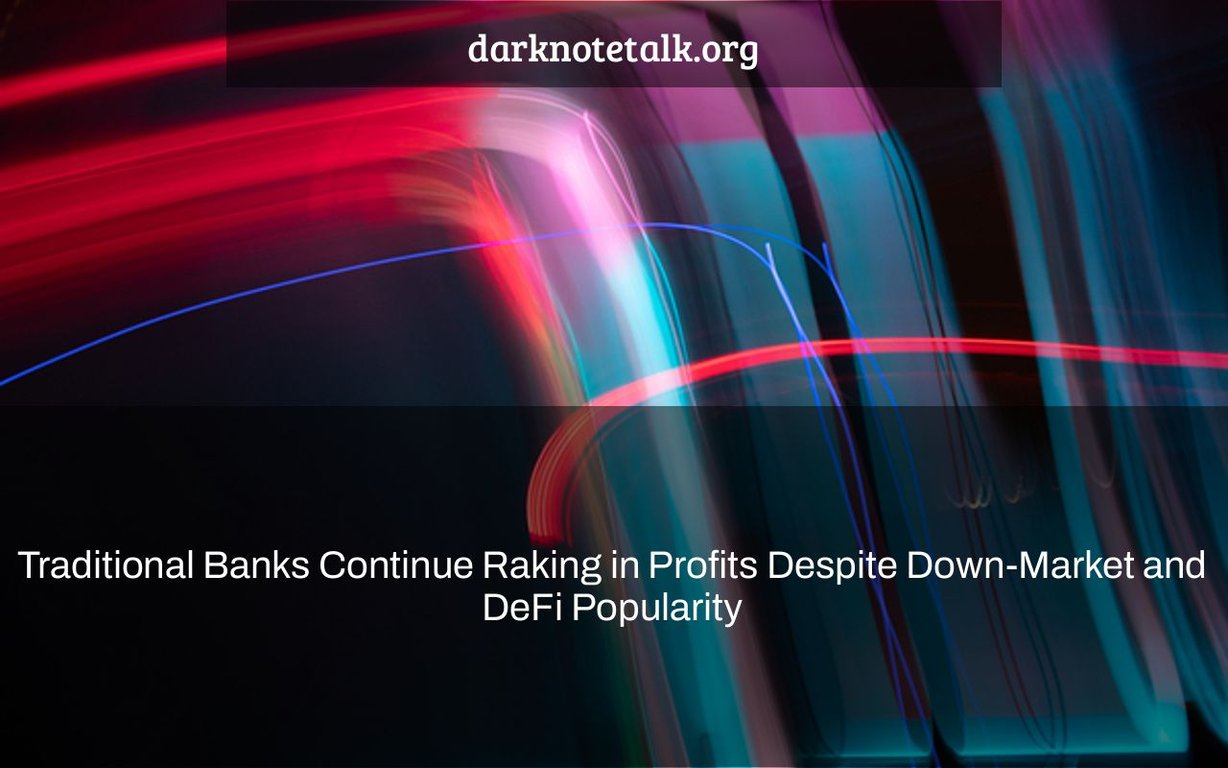The cryptocurrency industry has matured, but banks not so much. With an increasing number of decentralized digital currencies and FinTech startups at the heart of the financial sector, traditional banking profits remain stable. Bankers have been quick to point out that they provide a service necessary for people’s daily lives. Blockchain companies like Bitcoin are not doing anything new or different from what was already available before crypto came around.,
The “defi regulation” is a term used to describe the process of creating decentralized financial applications. The popularity of these apps is on the wane, but traditional banks continue to bring in profits.


Digital assets have grown in popularity in recent years. Yes, the market is in the midst of its most recent negative cycle, but a broader view reveals a whole host of positives. Bitcoin in particular has received formal recognition.
- Institutional investors and service providers were attracted.
- As a store of value/hedging asset, it has shown potential (adopted in many treasury reserves)
- demonstrated to be used as a medium of exchange (growth and adoption of Lightning Network)
- countries have adopted (El Salvador, Central African Republic)
Aside from Bitcoin, the industry has witnessed the emergence of totally new subgroups. Namely,
- Finances That Are Not Centralized (DeFi)
- Effects in the digital age
- Tokens that are not fungible (NFTs)
The list goes on, and it’s easy to get excited about what’s to come in the coming years when we look at this performance (along with past market highs), ignoring our continued need for and reliance on conventional financing. If you’re looking for a reality check and a way to temper your expectations, look no further than the current market downturn.
Last week, all of Canada’s major banks released their quarterly earnings reports, showing that despite how far digital assets have gone, they still have a long way to go before we can be free from our reliance on conventional finance.
Banks in Canada are performing better than expected.
As it is, most of the world is now dealing with excessive inflation, and Canada is no exception. Despite operating in seemingly challenging conditions, major banks across the country continue to report better-than-expected results.
As Canada’s top banks released their second-quarter financial results this week, one after another reported higher-than-expected profits, generally resulting in dividend hikes.
In essence, conventional banking is as profitable and resilient as ever at a time when inflation is spiraling out of control, real estate markets are hitting new highs and gasoline costs are hitting all-time highs.
Is it possible for digital assets to compete?
The following areas were found to have contributed to the better-than-expected performance of the major banks.
- Commercial and Retail Loans
- Management of one’s wealth
- Insurance
- cost
Intriguingly, each of the above factors for the success of Canada’s major banks is an area where digital assets have the potential to disrupt.
Lending is already commonplace in both centralized and decentralized ways, while decentralized autonomous organizations (DAOs) can replace traditional wealth management and insurance services. Fees on the other hand can be greatly reduced by assets such as Bitcoin on the Lightning Network.
This opportunity to one day catch up with or at least match the bread-and-butter services of the big banks in terms of widespread adoption hints at a bright future.
The remainder
At the moment, it is estimated that more than 300 million people around the world have used digital means at the beginning of the year – a drop in the ocean. All of this highlights not only how far innovative technologies like DeFi (which enable loans, interest-bearing accounts, value transfers, and so on) should go, but also how much potential remains untapped.
There will be more DeFi hacks, UST-like outages and bear markets along the way, and while digital assets are still years away from completely replacing conventional services, progress is being made. The Lightning Network will eventually become mainstream, regulatory uncertainty will be obsolete and our reliance on big banks will be obsolete.
The “how to select altcoins” is a blog post from the future. In it, we learn that traditional banks are still making a profit despite the down market and crypto popularity.
Related Tags
- decentralized regulation
- crypto enters the bear market
- regulations on cryptocurrency
- cryptocurrency future
- polkadot coin telegraph

